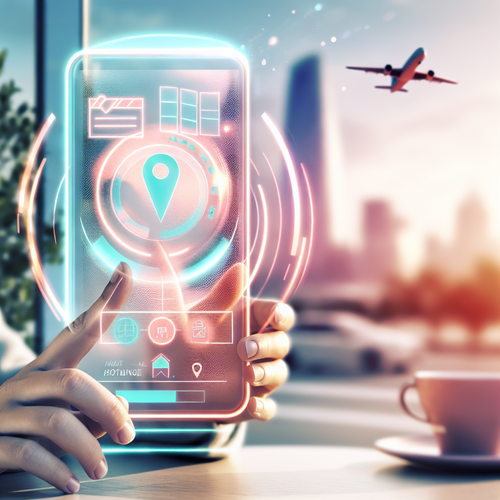⚡ Why AI Travel Agents Are Faster and Smarter Ways to Plan Trips
AI travel agents leverage advanced algorithms and machine learning to deliver faster and more personalized travel planning experiences. Their primary advantages include rapid processing of large data sets from multiple sources, enabling comprehensive options tailored to individual preferences instantly. Personalized recommendations factor in user history, preferences, and constraints, ensuring relevancy and satisfaction. Furthermore, AI agents operate 24/7 without the limitations of human agents, allowing travelers to plan at any hour. Integrated data connections across flights, accommodations, activities, and reviews streamline decision-making, reducing planning time significantly. Together, these capabilities empower modern travelers and corporate travel teams to achieve optimized outcomes quickly and efficiently, enhancing convenience and reducing stress during trip planning.
🤖 How AI Travel Agents Work: Key Features That Save Time and Reduce Friction
AI travel agents combine several cutting-edge technologies to streamline the entire travel planning process. Natural Language Processing (NLP) allows users to interact in everyday language, simplifying queries and reducing complexity. Multi-source search technology scans airlines, hotels, car rentals, and activity providers simultaneously, circumventing the need to visit numerous websites. Automated itinerary generation compiles optimal travel plans based on user preferences, timing, and budget. Integration with booking and payment platforms enables seamless reservation completion without leaving the AI environment. These features collectively eliminate manual repetitive tasks, minimize common friction points like conflicting schedules or incompatible bookings, and accelerate decision-making for both leisure and business travelers.
🌍 Real-World Benefits and Use Cases for Travelers and Tourism Businesses
AI travel agents deliver measurable benefits across diverse scenarios. Solo travelers gain quick, personalized plans that optimize budget and timing. Families benefit from considering multiple preferences and coordinating schedules effortlessly. Business travelers enjoy streamlined booking processes with corporate policy compliance embedded. Tour operators and hotels leverage AI agents to boost conversion rates via personalized offers and responsive virtual assistance, improving customer service quality. Online Travel Agencies (OTAs) integrate AI to enhance upselling and cross-selling, increasing revenue. Cost and time savings are widely reported, with reductions in planning time by up to 50%, and conversion rate lifts exceeding 20% documented. These use cases illustrate when AI travel agents provide the greatest value—complex itineraries, large groups, frequent travel, and high customer engagement environments.
🛒 Choosing and Using an AI Travel Agent: Practical Buyer and User Checklist
When selecting an AI travel agent, prioritize these key criteria: First, evaluate privacy and data handling policies to ensure compliance with GDPR and other regulations. Confirm seamless integration capabilities with existing booking systems, corporate platforms, or CRM tools. Assess the level of customization offered to tailor recommendations and workflows to your unique needs. Test accuracy and reliability by conducting pilot bookings or trial scenarios. Review pricing models for transparency and scalability, considering subscription versus usage fees. Ensure responsive customer support for troubleshooting and updates. To adopt effectively, start with a small-scale pilot to validate performance, gather user feedback, and incrementally scale usage based on measurable outcomes. This checklist helps individuals and organizations maximize benefits while mitigating risks and ensuring smooth transitions.
🔮 What’s Next for AI Travel Agents: Trends, Risks, and Next Steps
The evolution of AI travel agents is headed toward multimodal interfaces combining voice, text, and visual inputs for more natural interactions. Deeper personalization through real-time data and predictive analytics will elevate user experiences. Emerging agent marketplaces will enable more competitive, innovative solutions accessible to a wider audience. However, risks remain, including algorithmic bias that can limit options, data privacy concerns with sensitive travel information, and user overreliance on AI potentially diminishing human judgement. Travelers and businesses should seek to balance AI assistance with awareness and control. As a next step, consider piloting AI travel agents to explore their benefits firsthand, analyze outcomes, and refine adoption strategies for your unique needs.

